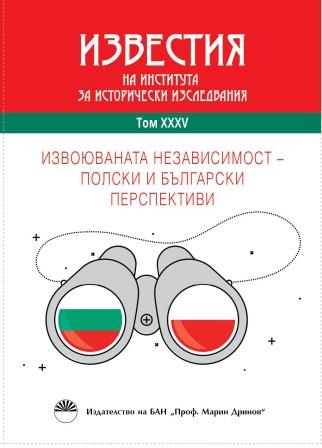Ролята на Източна Европа в процеса на трансформация на разказа за Втората световна война след 1989 г. (на примера на Полша и България)
Eastern Europe’s Role in the Process of Transformation of the Narrative of World War II After 1989 (The Cases of Poland and Bulgaria)
Author(s): Petya B. DimitrovaSubject(s): History, Political history, Recent History (1900 till today), Special Historiographies:, WW II and following years (1940 - 1949), Transformation Period (1990 - 2010), Fascism, Nazism and WW II, History of the Holocaust, Post-Communist Transformation
Published by: Институт за исторически изследвания - Българска академия на науките
Keywords: World War 2; Poland; Bulgaria; East European historical narrative; Holocaust; victims of war
Summary/Abstract: The article analyzes the changes in the way the narrative of what happened during World War II has been told in the Eastern European countries since the fall of communism and the disintegration of the Eastern Bloc. There, the discarded Marxist-Leninist ideology and Soviet mythologems about the war have been replaced by new narratives. Besides, each country focuses on its own experiences, searches for its own truths and wishes to insert its own stories into the common European narrative. The study examines the changes in two of the Eastern European countries – Poland and Bulgaria, which belong to different cultural, historical and geopolitical areas, but nevertheless show certain similarities in their development. The analysis focuses on the two main directions in which the construction of the new European narrative has been developing: 1) Turning the Holocaust into a central event in the memory of WW II that is to displace all other issues related to the Nazis’ coming to power and engaging the world in a war; 2) Victimization of Eastern Europe, i.e. bringing into the big European narrative the Eastern Europeans’ vision of themselves as double victims ‒ of Nazism and of Stalinism. In conclusion, the author argues that both in regard to their communist past as a result of the war, and in relation to the Holocaust, Poland and Bulgaria have their own interpretations that cannot always be woven into the general narrative. The situation is similar in the rest of the countries from the former Eastern Bloc. This is why thirty years after the fall of the Berlin Wall many of the memory boundaries that Tony Judt described as early as in 1992 as remaining “solidly in place”, are still present.
Journal: Известия на Института за исторически изследвания
- Issue Year: 35/2020
- Issue No: 1
- Page Range: 205-229
- Page Count: 25
- Language: Bulgarian
- Content File-PDF

